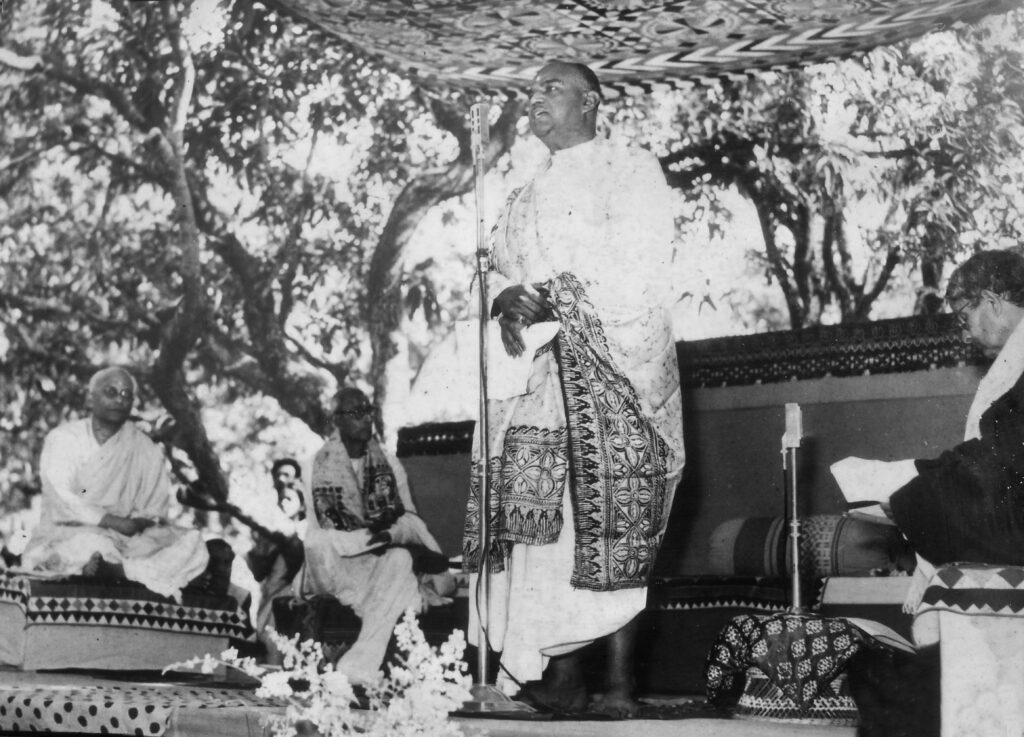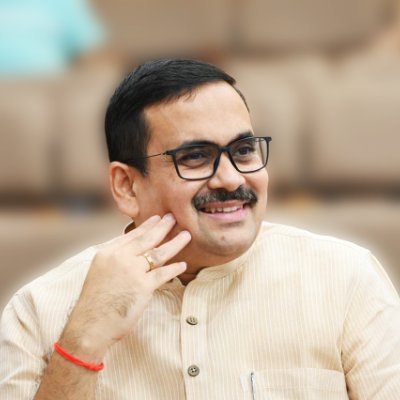In a bold editorial tribute to Dr Syama Prasad Mookerjee, in July 1953, shortly after his death in detention in Kashmir, the iconic journal Modern Review best described Syama Prasad and best evoked the collective of sense of loss felt by a shocked nation. The people of Syama Prasad’s own state, the state he had created, West Bengal, felt it most. The Modern Review editorial spoke of Acharya Vinoba Bhave, who, it pointed out, had said that Syama Prasad had “sacrificed himself for a cause in which he had faith.” And “what more can any man do?”, the Modern Review lamented, “By his last supreme sacrifice he has proved that he was free of parochialism, which is more than can be said of our tinsel gods of today.”
Anyone who came in touch with Dr Syama Prasad Mookerjee, was struck by his boldness of purpose, his compassion and steadfast adherence to principles, his resolute stance in support of the beleaguered and by his complete disregard for personal safety and danger. “In all his political career,” the Modern Review tribute noted, “he never failed to answer any call for assistance by the distressed and his disregard for personal danger was apparent to all but the crooked or deliberately blind. He was a man of action…His qualities and metal were recognised by Sardar Patel, the only man of his stature in the Nehru cabinet and it was at the Sardar’s insistence that he was included” in the first cabinet of free India.
This compassion for the distressed was seen when he rushed to bring relief to the cyclone hit people of Contai in Midnapore in October 1942, or when he organised a massive relief operation during the great Bengal Famine of 1943. He did not merely halt at criticizing the Khawaja Nazimuddin led Muslim League government for its acute apathy in providing relief and plunged instead in organising relief.
The Bengal Relief Coordination Committee was set and by November, the provincial Hindu Mahasabha, under Dr Mookerjee’s leadership, operated 160 canteens serving 60,000 people daily across the province. His appeals and efforts elicited response from across India, from Baluchistan to Assam, from the northern recesses of the Himalayas to the Cape Comorin. That fearlessness, sense of justice and the trait of standing by the marginalized and the oppressed was seen by many who met Syama Prasad and worked with him in various fields throughout his short life.
Subhas Chandra Bose’s nephew and Sarat Bose’s son Sisir Bose, in his memoirs of the Bose brothers, describes this trait of Dr Mookerjee’s, then Finance Minister in the Fazlul Huq led Progressive Coalition ministry, popularly known as the Syama-Huq Ministry.
Sisir was desperately running from pillar to post, trying to get his first cousin Dwijendra Nath, then lodged in the Alipore Central Jail, released on parole to perform the last rites of his brother Ganesh who had died of an attack of cerebral apoplexy. Sisir tried to get ministers who owed their position to his father Sarat Bose to intervene, but with no result. One minister shrugged him off, while premier Fazlul Huq, speaking to the police chief, was curtly told that he would need clearance from the Government of India.
“I then telephoned the finance minister, Syama Prasad Mookerjee, who asked me to come to his chamber at Writers’ Building”, recalled Sisir Bose. “That was my first ever-visit to the Writers’ Buildings. There were instructions left at the gate and I had no trouble getting in. In my presence Syama Prasad spoke on the telephone to the additional home secretary of the Government of India, Richard Tottenham. I could sense that the British official was very unwilling to help.” But Syama Prasad “would not give up and persisted, saying repeatedly: ‘This has to be done! This has to be done!’ Eventually Tottenham relented and half agreed. Syama Prasad asked me to go home. After a tug-of-war that lasted the entire afternoon, order arrived for Dwijen to be taken from the jail under heavy police escort directly to the cremation ground – and returned to jail as soon as the cremation was over.” Syama Prasad’s fearless stance had made a great impression on Sisir, “Father and Uncle Subhas had fundamental political differences with Syama Prasad Mookerjee; they followed different ideologies. But I was greatly impressed by how Syama Prasad stood up to the British authorities in the context of this family tragedy of ours.”
Numerous such episodes are scattered throughout Dr Mookerjee’s life as an educationist, as the leader of Bengal and of Bengali Hindus, as a Parliamentarian, Union Minister and as the founder of a new political movement in free India.
“Fight was in his blood. He never courted it. Never did he run away from it either”, wrote peripatetic journalist and writer Saint Nihal Singh in a moving “intimate impression” of the “lion-hearted leader.” Singh discerned ever since he saw Syama Prasad, that “his thoughts were not at all for himself” but for his people and of how “he could conserve freedom in jeopardy, how he could make maximum contribution to his country’s welfare?”
His entry into politics was caused, Nihal Singh argues, “by the mental conflict over the mode and means of his service to his country,” what “would be best for the people” was the question that drove him at this decisive turn in his life when he stepped out of the academia into the larger arena of national politics and national regeneration.
One is often asked on how and why did Dr Mookerjee transition from a visionary educationist to a leader of people and of epochs? That question is answered in the inspiring analysis in Nihal Singh’s intimate impression. “It would be wrong to say that he was sucked into politics,” Singh observes, “No. His choice was deliberate. It was made with much search of heart. This is not because he would have to give up something certain for something uncertain. He did not have any doubt that he would succeed in the political sphere as he had done in the educational one. Success or failure, in fact, did not matter to him. Not, personally. His concern was only that he must not hang back when the call of duty rang in his ears – call from the mother in anguish at the misdeeds plotted and perpetrated by an unholy alliance of indigenous and alien forces. And he did not.”
This intense propensity of not hanging back when service to the Motherland beckoned was one of the greatest and finest traits that dominated Syama Prasad’s life at every moment, defining his actions and his politics. It is thus deeply symbolic and significant that his 125th birth anniversary is being heralded under the leadership of Prime Minister Narendra, at a time when the political movement he had conceived and launched is in power for a record third term. The commemoration comes at a time when Syama Prasad’s ideal and vision for India is being steadily fulfilled and coming to fruition.
The occasion of his 125th birth anniversary also offers us a historic scope to recall and to contemplate his struggles, his achievements and his life of epic proportions.
(This article first appeared in News18)
(The views expressed are the author's own and do not necessarily reflect the position of the organisation)


